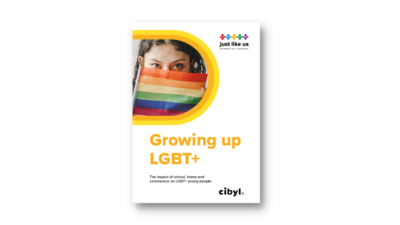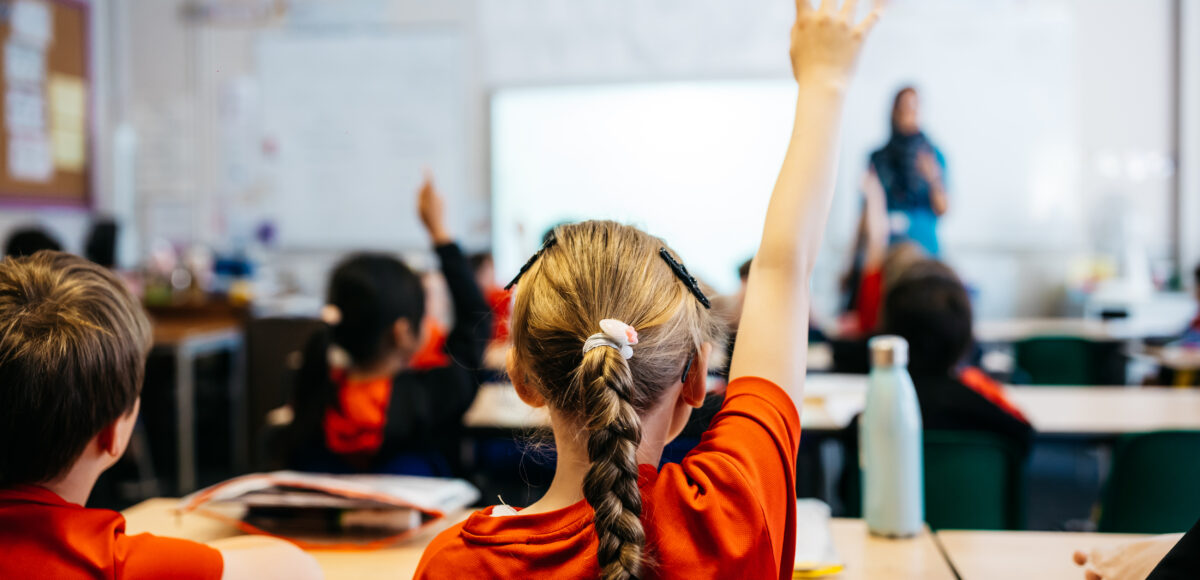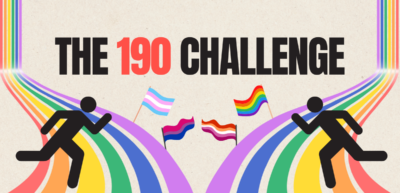
New research shows majority of LGBT+ young adults wish LGBT+ education started in primary school or nursery
News

The majority (74%) of LGBT+ young adults believe children should learn about LGBT+ inclusion in primary school or nursery, according to new research by Just Like Us, the LGBT+ young people’s charity.
The survey of 3,695 adults aged 18 to 25 also found that more than a third (37%) of non-LGBT+ young adults said LGBT+ inclusive education should start in primary school or nursery.
LGBT+ inclusive education in primary schools
Government guidance to schools already recommends to primary and secondary schools that they should teach LGBT+ inclusive education, and Just Like Us runs School Diversity Week to help schools do this in an age appropriate way – such as celebrating diverse families in Early Years.
The breakdown shows that 44% of LGBT+ young adults believe children should learn about LGBT+ identities in primary school, and 30% said they should learn about the topic in ‘pre-school or earlier’.
This is compared to 28% of non-LGBT+ 18 to 25-year-olds who think LGBT+ identities should be taught about in primary school, and 9% of non-LGBT+ young adults who think LGBT+ identities should be discussed in pre-school or earlier.
Sadly, 18% of non-LGBT+ young adults said they thought children should never learn about LGBT+ people in primary or secondary school. This is despite research showing a link between LGBT+ inclusive education in schools and pupils – including non-LGBT+ pupils – having better wellbeing.
Of all LGBT+ identities, non-binary young adults were the most likely (47%) to say that children should learn about LGBT+ identities in pre-school or earlier. The least likely to say so were gay men and those questioning their LGBT+ identity (both 19%).
The data forms part of a new report by Just Like Us (the LGBT+ young people’s charity) called Positive Futures, due to be published on 1 June. Just Like Us’ research was carried out independently by Cibyl in January 2023.
The report will look at the experiences of young LGBT+ adults in the UK, covering a range of topics from their wellbeing, home life and time in school to their experiences in the world of work, as well as taking into account intersections like faith, race and disability.
“Our School Diversity Week programme with primary schools is simply about kindness, respecting difference and celebrating diverse families.”
— Amy Ashenden, Interim CEO
Amy Ashenden, interim CEO of Just Like Us, the LGBT+ young people’s charity, said: “It is unsurprising that LGBT+ young people wish inclusive education began earlier as silence leads to shame and stigma.
“Our School Diversity Week programme with primary schools is simply about kindness, respecting difference and celebrating diverse families – for example, talking about how some people have lesbian mums, two dads or a trans sibling, which is reality for many young people in school today.
“Our previous research has shown that positive LGBT+ messaging in schools is linked to young people – whether they’re LGBT+ or not – being less likely to contemplate suicide and feeling safer at school, so it’s vital that all schools are LGBT+ inclusive for the sake of wellbeing.”

